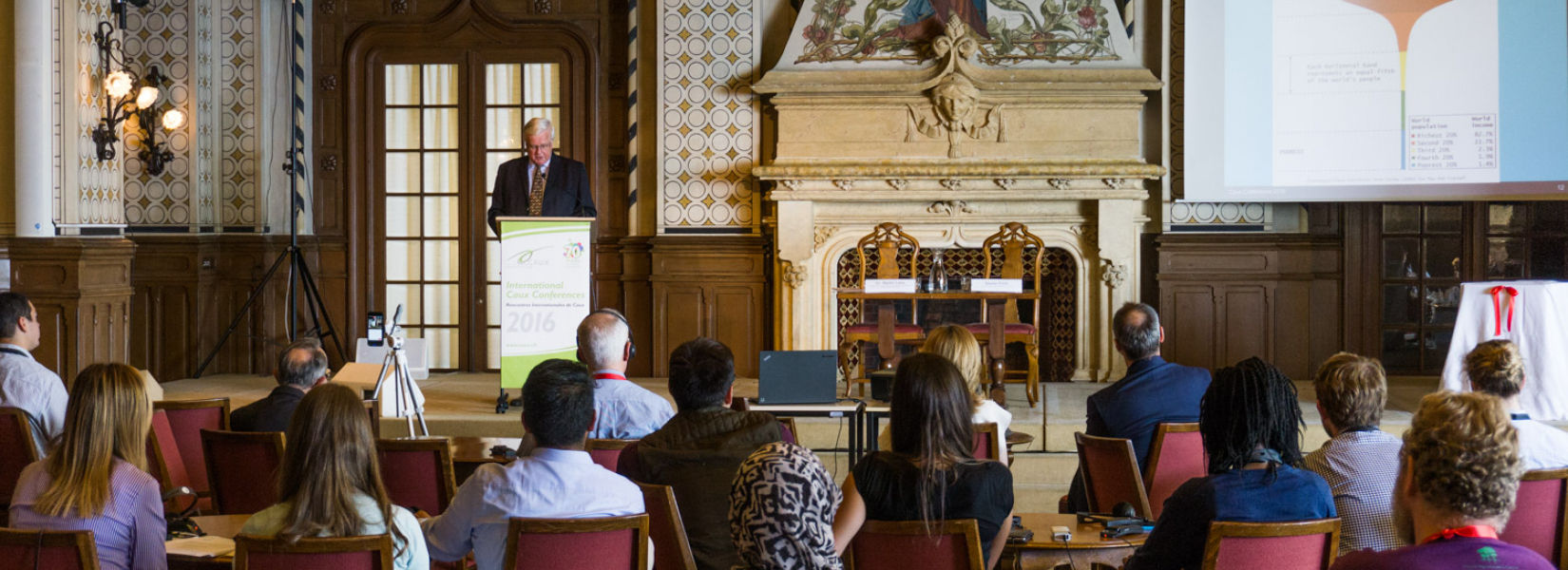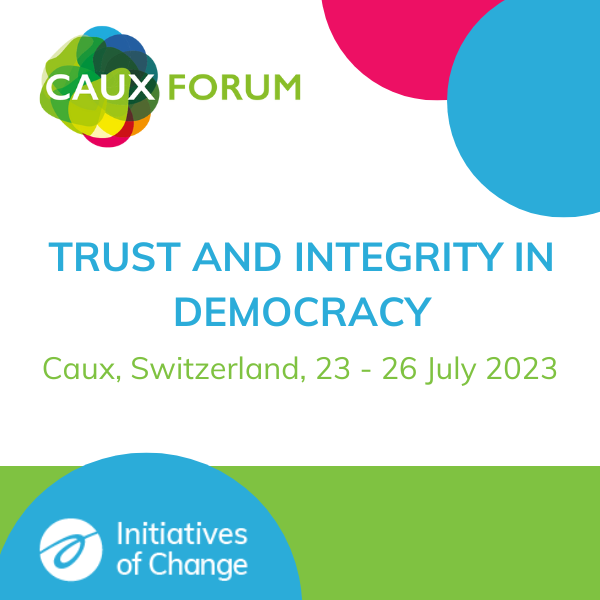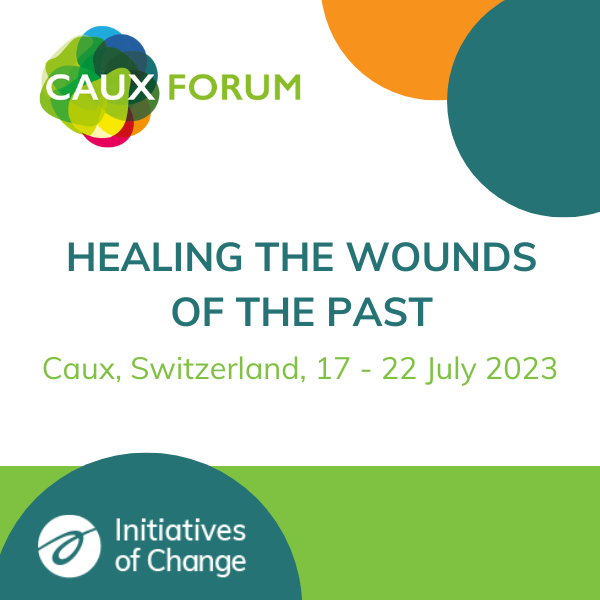Opening of the Caux Dialogue on Land and Security 2016
Do we need a crisis for people to wake up just in time?
30/06/2016
Martin Lees’ (see interview below) keynote speech opened the Caux Dialogue on Land and Security 2016 on June 29 with a sense of urgency about the situation the world is facing today. With over 7.4 billion people and not enough resources, it cannot be stressed enough that habits/behaviors and economic/financial models but also Politics needs to change. He discussed land use as a key to human development, climate change, migration and peace. Former Secretary General of Club of Rome and Member of Gorbachev High Level Task Force on Climate Change, Dr Lees reminded the audience that 2 Degrees rise in the planet’s temperature can make the difference for the survival of human civilization on this planet. He criticized that trillions of dollars were found in a matter of hours to save the banks, but that the will was lacking to invest in our future.
When asked what could be done concretely to change the current habits, he said that collaboration between developed and developing countries must be revitalized; political agendas need to be set aside if we want to survive as a species.
'The future is by no means pre-ordained but will be determined by our choices and actions – if, that is, we act in time. But time is running out.'
He noted the importance to “optimize the use of the scarce and vital land”. Mathew Tuitoek, the Deputy Governor of Baringo County, Kenya, joined the conversation via skype. Watch the facebook videos here.
Dr Lees and Mr Tuitoek intervention set the tone for a conference set on finding innovative solutions to a global crisis.
What we are expecting in the coming days:
The 1 July will mark the Official opening of the Caux Conference season- more info here. It is also a momentous occasion for CDLS, with the launch of Land Restoration: Reclaiming Land for Sustainable Future, the product of previous Dialogues, written by Martin Frick and Jennifer Helgeson. The inspiring book brings together practitioners from NGOs, academia, governments, and the United Nations Convention to Combat Desertification (UNCCD) to exchange lessons to enrich the academic understanding of these issues and the solution sets available.
A highlight of the Dialogue will be a keynote speech by Dina Ionesco addressing land degradation and migration pressure, building on the Initiatives of Change’s experience from North Rift Valley, Kenya, and benefitting from current research. The conference will also foster reflection on the outcomes of last year’s CDLS, with Professor Muhammad Swazuri, the Chair of the National Land Commission of Kenya leading feedback from the Kenya Dialogue on Land and Security. The CDLS is excited to welcome Joseph Simcox, The Botanical Explorer, in debate with Barbara Bendandi from UNCCD and Dr Antje Herrberg of mediatEUr, to discuss holistic solutions in land restoration, sustainable land management and trust building to address migration. Through such open debate between a diverse group of individuals with different areas of expertise, the CDLS will foster a comprehensive and practical approach to land difficulties, aiming to produce innovative solutions.
‘When I started work on these international issues at OECD in 1971, they were less acute, on a smaller scale and further ahead in the future. They were then more manageable and open to resolution. Due to our failure to act effectively and jointly for several decades, the issues we face today are far more substantial and dangerous. And they are no longer issues for the future: they are already damaging the lives, safety, health and livelihoods of millions of people today. The risks and impacts we face are escalating and immediate. It is therefore imperative to take strong international action if we are to achieve and preserve a progressive, prosperous and peaceful world.’

Martin Lees, opening statement of CDLS 2016, Caux, Switzerland































